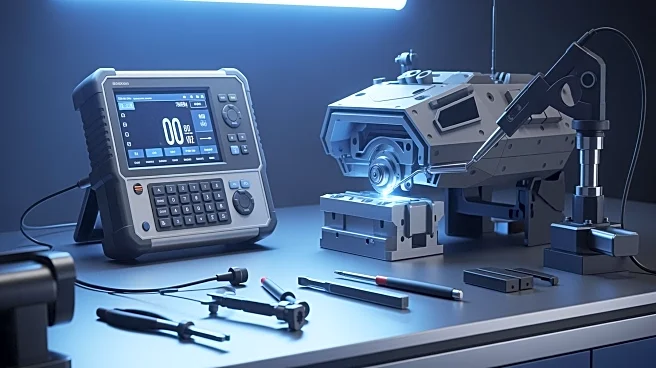What's Happening?
The US Army has awarded American Rheinmetall an 18-month contract worth $31 million to develop and demonstrate rapid Damage Assessment and Repair (DAR) processes for Bradley Infantry Fighting Vehicles (IFVs). This initiative, supported by the National
Center for Manufacturing Sciences, aims to establish a forward-deployed maintenance capability, allowing damaged vehicles to be assessed and repaired closer to operational areas. The project seeks to bridge the gap between initial battlefield damage and full depot-level repair, enhancing the operational readiness of military vehicles. The program will validate the DAR team's training and utilize advanced processes, tools, and a responsive supply chain to ensure vehicles return to service quickly.
Why It's Important?
This contract is significant as it enhances the US Army's ability to maintain operational readiness and resilience in military infrastructure. By enabling quicker repairs of Bradley IFVs, the initiative supports US foreign assistance efforts, particularly aiding Ukrainian forces in their ongoing conflict with Russia. The project underscores American Rheinmetall's commitment to delivering mission-critical products and services, ensuring vital equipment can return to service swiftly. This development is crucial for maintaining the effectiveness of military operations and supporting allies in conflict zones.
What's Next?
The project is expected to be completed by March 2027, with the first batch of repaired Bradley vehicles due for delivery at that time. The initiative may lead to the establishment of scalable remote damage assessment and repair sites in hazardous environments, potentially influencing future military logistics and repair strategies. Stakeholders, including military leaders and defense contractors, will likely monitor the project's progress and outcomes closely.
Beyond the Headlines
The initiative could have broader implications for military logistics, potentially setting a precedent for how damage assessment and repair are conducted in conflict zones. It may also influence future defense procurement strategies, emphasizing the need for rapid repair capabilities in military operations.















